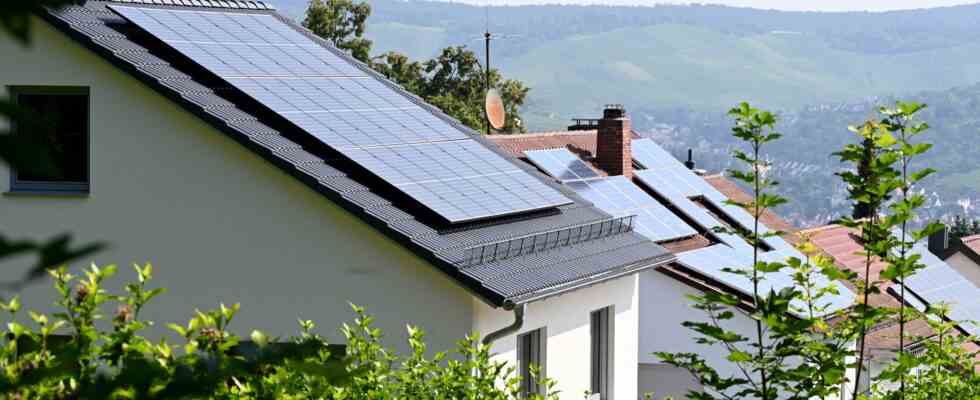Status: 03.10.2022 08:18 a.m
Numerous applications, months of waiting: If you want to put a solar system on the roof, you first have to get through a bureaucratic paper war. Plants that could have been producing electricity for a long time are idle for months.
Actually, the photovoltaic system on the turbine hall in Oberhausen could have helped save a long time ago – but even the renewables can’t compete with the German bureaucracy.
The system was ready for operation a year ago, says Björn Josefiak from the turbine hall in Oberhausen. “Since September 2021, the plant could have supplied electricity, and then we managed to do it – mid-July 2022.” Nine months of solar energy wasted because the system manufacturer suddenly had to obtain a kind of official stamp from a certification office.
Until mid-2019, this was not necessary with such systems. But then the Federal Network Agency radically lowered the threshold for certification. Since then, even medium-sized plants like the one in Oberhausen have had to undergo an expensive and long simulation process. Result: Thousands of operators could not go online.
Over-regulated energy transition
Jörn Kersten, SR, PlusMinus, September 28th, 2022
Energetic running the gauntlet
It is still much too complicated for the smaller, private electricity producers. Unfortunately, having a solar system on the roof does not mean that electricity can also be fed into the grid. “We’ve had the system since June 24 of this year. And the problem is that the grid application isn’t being processed by the default supplier,” complains Sören Zander from Brandenburg. He suspects that the basic suppliers may be putting the brakes on for fear of losing their own profits.
A similar picture emerges at the other end of Germany. Bernd Schmidt from Saarbrücken waited months for his bidirectional meter. When that was finally there, the next obstacles came. “As a prerequisite for commissioning, the public utilities have stipulated that a LAN connection be established. Namely between the gas meter, the water meter and the electric meter.”
Mercenaries in the Paper War
Additional costs with no real benefit and months of waiting to harvest your own power. Instead of support, there is a stick between the legs – and a huge paperwork. “If you look at the map, it’s reminiscent of Germany a few hundred years ago, when there were still many principalities with their own rules,” says Mario Kohle.
His company, Enpal GmbH, sells photovoltaic systems throughout Germany. 50 employees alone are busy there registering the new systems with the more than 900 German grid companies. “It can sometimes happen that you get a form returned by the network operator just because it’s in the wrong format and they say – ‘please fill out the 60 pages again’.”
The federal government has already promised improvement, there should finally be a uniform online registration – from 2025. “I just imagine that in 15 years we will talk to our children and say: Sorry, we didn’t manage the energy transition because that there was just too much paperwork,” says Kohle.
Others do better
Everything is much less complicated in Holland, says Johannes Bühle. He has equipped his welding workshop in Vaals, just across the German border, with a solar system. “By the end of the year I hope that I have generated a surplus of electricity and that what I have used will be deducted. And what is left over will then be paid out to me.”
For clarification: if 10,000 kilowatts (kW) of solar energy is produced on the roof and 6000 kW is consumed, 4000 kW go into the power grid. If 3000 kW is then consumed from the grid instead of from the roof in winter, this is offset against the 4000 kW. So there is a remuneration for 1000 kW.
It can only get better
In Germany, small power producers can only dream of such an uncomplicated and at the same time lucrative solution. They get 8.2 cents per kilowatt hour, but – as of today – have to pay around 37 cents per kilowatt hour consumed from the power grid. There is no offsetting against each other.
“Full energy for renewables” was what Federal Economics Minister Robert Habeck called for in an advertising clip in happier times. After all, the federal government has suspended the certification for plants like the one in Oberhausen for the time being; you can now deliver the papers later. Small consolation, because it is well known that postponed is not lifted.

